|
|
|
|
|
|
|
|
Today's Congressional Action:
The House is in session and expected to consider non-Arctic legislation. The Senate is expected to host a pro forma session.
|
Media
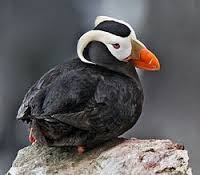 Large Die-Off of Tufted Puffins in Pribilofs Seems Linked to Warm Conditions. Large Die-Off of Tufted Puffins in Pribilofs Seems Linked to Warm Conditions. Earlier, it was murres and whales that had been turning up dead in large numbers on Alaska beaches or in Alaska waters. Now it is puffins, bright-beaked birds that are icons of Alaska's marine communities. Since mid-October, residents of St. Paul Island in the Pribilofs have found over 200 dead tufted puffins washed ashore on the Bering Sea beach, along with additional dead horned puffins and murres. The extent of the die-off - 217 dead tufted puffins found as of Nov. 4 - is alarming and appears to be linked to unusual warmth in the region, said University of Washington ecologist Julia Parrish, who has been consulting with St. Paul islanders. Alaska Dispatch News
Nunavummiut Smoking More Than Ever: Report. Nunavummiut bought more than 56 million cigarettes in 2015, says the territory's Chief Medical Officer of Health in a new report. That's up from 54.5 million cigarettes sold in 2014. The 2015-16 annual report on Nunavut's Tobacco Control Act shows that while most Canadian jurisdictions have seen steady declines in smoking rates and tobacco use, Nunavut smoking rates are actually on the rise. Nunatsiaq Online
 Why Did Greenland's Viking Disappear? Why Did Greenland's Viking Disappear? In 1721, missionary Hans Egede sailed a ship called The Hope from Norway to Greenland, seeking Norse farmers whom Europeans hadn't heard from in 200 years in order to convert them to Protestantism. He explored iceberg-dotted fjords that gave way to gentle valleys, and silver lakes that shimmered below the massive ice cap. But when he asked the Inuit hunters he met about the Norse, they showed him crumbling stone church walls: the only remnants of 500 years of occupation. "What has been the fate of so many human beings, so long cut off from all intercourse with the more civilized world?" Egede wrote in an account of the journey. "Were they destroyed by an invasion of the natives ... [or] perished by the inclemency of the climate, and the sterility of the soil?" Archaeologists still wonder today. No chapter of Arctic history is more mysterious than the disappearance of these Norse settlements sometime in the 15th century. Theories for the colony's failure have included everything from sinister Basque pirates to the Black Plague. But historians have usually pinned most responsibility on the Norse themselves, arguing that they failed to adapt to a changing climate. Science Mag
Russian Science at the Crossroads. As the United States goes to the polls after an unprecedentedly vulgar election campaign, its former cold-war rival is exuding strength and confidence. Just last week, Russia cited its proud history of exploration and science in Antarctica when giving the green light to an international agreement to create a vast marine reserve in the Ross Sea. Even so, Vladimir Putin's chauvinistic approach to politics has a certain appeal to some - at home and abroad. The Russian leader's perplexing popularity in some circles detracts from his enduring failure to modernize his country's government, society and economy. Nature
 China's Plan for The Arctic-and a Shipping Center to Rival Singapore. China's Plan for The Arctic-and a Shipping Center to Rival Singapore. Washed by the shallow waters of the Tumen River that divides Russia and North Korea, China's Hunchun has few tourist attractions other than a coin-operated set of binoculars, on an elevated platform, that lets the occasional visitor survey the three neighbors' only junction. But if business expands along Arctic shipping routes linking the Atlantic and Pacific, this obscure city of little more than 200,000 could become "an international shipping center equal to Singapore", Xinhua, China's state-run news agency, claimed last year. China, having styled itself as a "near-Arctic nation", is jockeying to play a greater role in the contested High North. Beijing attained permanent observer status to the intergovernmental Arctic Council in 2013, but experts say its ambitions are beyond those of a passive onlooker. South China Morning Post
Arctic Climate Changing Three Times Faster Than Average Global Levels. Addressing an international symposium, scientist Luca Belelli Marchesini from Russia's Far Eastern Federal University presented data showing that the Arctic climate is changing three to four times faster than average global levels, according to the university's website. Yakutsk hosted the ninth international symposium on the carbon, water and energy balance and the climate of boreal and Arctic regions, with a focus on eastern Eurasia. During the event, Marchesini presented data on carbon dioxide emissions in the Arctic zone. The Arctic
Researchers Find Traces of Nuclear Tests in the Arctic Ocean. Russian oceanographers who conducted research off the western coast of the Novaya Zemlya Archipelago have established that radionuclides that polluted the island after a series of nuclear tests in the 1960s are gradually washed into the Arctic Ocean, RIA Novosti reported, citing the journal Oceanology. "Analysis of ice samples from the northern ice dome of Novaya Zemlya has not yet revealed any high radioactivity areas. However, our research has produced information about a glacier we did not study before and has identified the layer that is contaminated by radioactive materials," said Alexei Miroshnikov from the Moscow-based Institute of Geology of Ore Deposits, Petrography, Mineralogy and Geochemistry, Russian Academy of Sciences (IGEM RAS). The Arctic
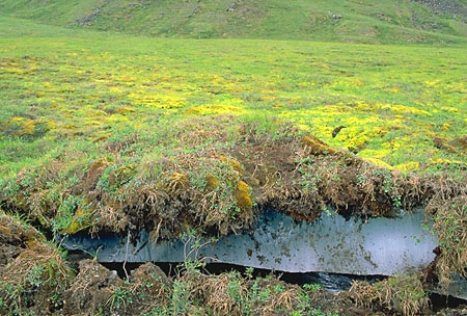 Study Finds Limited Sign of Soil Adaptation to Climate Warming. Study Finds Limited Sign of Soil Adaptation to Climate Warming. While scientists and policy experts debate the impacts of global warming, the Earth's soil is releasing roughly nine times more carbon dioxide to the atmosphere than all human activities combined. This huge carbon flux from soil-due to the natural respiration of soil microbes and plant roots-begs one of the central questions in climate change science. As the global climate warms, will soil respiration rates increase, adding even more carbon dioxide to the atmosphere and accelerating climate change? Phys.org
|
Legislative Action.gif)
No Arctic legislation was formally considered yesterday.
|
|
Future Events
 ArcticNet annual Scientific Meeting 2016, December 5-9, 2016 (Winnipeg, MP Canada). ArcticNet will host its 12th Annual Scientific Meeting. The ASM2016 will welcome researchers, students, Inuit, Northerners, policy makers and stakeholders to address the numerous environmental, social, economical and political challenges and opportunities that are emerging from climate change and modernization in the Arctic. As the largest annual Arctic research gathering held in Canada, ArcticNet's ASM is the ideal venue to showcase results from all fields of Arctic research, stimulate discussion and foster collaborations among those with a vested interest in the Arctic and its peoples. ArcticNet annual Scientific Meeting 2016, December 5-9, 2016 (Winnipeg, MP Canada). ArcticNet will host its 12th Annual Scientific Meeting. The ASM2016 will welcome researchers, students, Inuit, Northerners, policy makers and stakeholders to address the numerous environmental, social, economical and political challenges and opportunities that are emerging from climate change and modernization in the Arctic. As the largest annual Arctic research gathering held in Canada, ArcticNet's ASM is the ideal venue to showcase results from all fields of Arctic research, stimulate discussion and foster collaborations among those with a vested interest in the Arctic and its peoples.
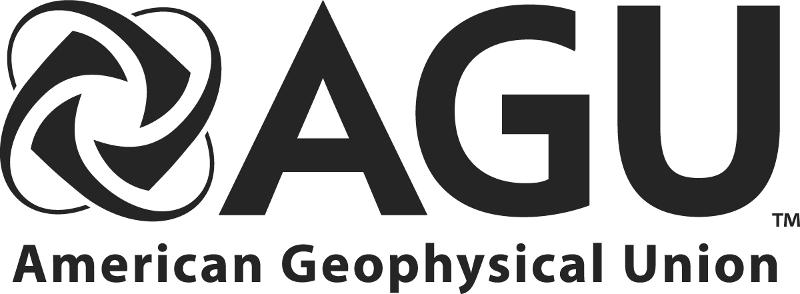 American Geophysical Union Fall Meeting, December 12-16, 2016 (San Francisco, CA USA). American Geophysical Union Fall Meeting, December 12-16, 2016 (San Francisco, CA USA). Anticipating about 25,000 attendees, AGU's Fall Meeting will again be the largest Earth and space science meeting in the world. 2016 marks the meeting's 49th year and there will be approximately 20,000 oral and poster presentations in over 1,700 sessions, many of which will focus specifically on Arctic science. Among the highlights, the "2016 Arctic Report" will again be released, IARPC will hold a "Town Hall Meeting" on Thursday, Dec. 15th, from 12:30 to 1:30 pm in Moscone West Room 2003, and NASA will have a Town Hall on Operation IceBridge on Dec. 14th, in Moscone Room 202 from 12:30 to 1:30 pm.
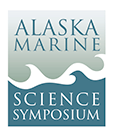 Alaska Marine Science Symposium, January 23-27, 2017 (Anchorage, AK USA). Alaska Marine Science Symposium, January 23-27, 2017 (Anchorage, AK USA). The annual Alaska Marine Science Symposium (AMSS) is Alaska's premier marine research conference. It brings together roughly 800 scientists, educators, resource managers, students, and interested public to discuss marine research being conducted in Alaskan waters. Research will be presented by geographic theme, including the Gulf of Alaska, Bering Sea & Aleutian Islands, and the Arctic. Topic areas will include ocean physics, fishes and invertebrates, seabirds, marine mammals, local traditional knowledge and more. Keynote presentations will be held Monday, January 23rd; Gulf of Alaska presentations will be on Tuesday, Bering Sea/Aleutian Islands on Wednesday, followed by the Arctic on Thursday.
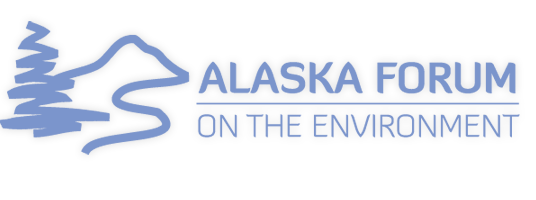 Alaska Forum on the Environment, February 6-10, 2017 (Anchorage, AK USA). Alaska Forum on the Environment, February 6-10, 2017 (Anchorage, AK USA). This statewide gathering of environmental professionals, community leaders, Alaskan youth, conservationists, biologists and community elders will be holding its 19th meeting to continue providing a strong educational foundation for all Alaskans and a unique opportunity to interact with others on environmental issues and challenges. As many as 1,800 people are expected to attend AFE this years meeting.
6th Annual Fletcher Arctic Conference, February 17-18, 2017 (Medford, MA USA). Fletcher Arctic VI, a TEDx-style event, will showcase the ideas, stories, and initiatives of people who live and work in the Arctic. The conference will bring together inspiring leaders, innovative business people, expert scientists, and artists from the pan-Arctic region. Building on The Fletcher School's interdisciplinary approach, Fletcher Arctic VI will be a forum to engage in conversation and spark open and constructive debate between speakers and participants, providing deep insights into this unique and rapidly changing region.
IV International Forum, March 2017 (Arkhangelsk, Russian Federation) Arkhangelsk will host the Forum. The Forum will be titled Human in the Arctic and will be aimed at putting together joint efforts of the international community to promote effective development of the Arctic region as a territory for comfort life, work and leisure. The Forum will be attended by government officials, representatives of international organizations and prominent business communities, centers for political studies, Polar researchers and members of the international Arctic expeditions, foreign political scientists and economists, Russian and foreign journalists from leading international media organizations. The Forum will be attended by the President of the Russian Federation, Mr. Vladimir Putin. Additional information will be announced here.
- The Arctic Cryosphere
- Pollution in the Arctic
- Human Health Aspects of Pollution and Climate Change
- Global and Arctic Systems Feedback Mechanisms
- Resilience within Arctic Ecosystems
- Science and Plicy Making
- Socio-Economic Drivers and Impacts of Arctic Change
Organizers announce a call for abstracts which are due by December 2, 2016. The event is organized by the Arctic Monitoring and Assessment Program (AMAP).
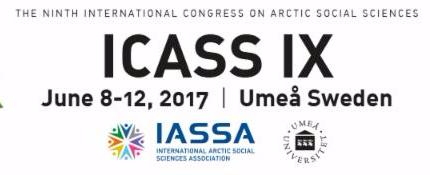 Ninth International Congress of Arctic Social Sciences: People and Places (ICASS IX), June 8-12, 2017 (Umeå, Sweden).ICASS IX's theme is People & Place. Research on social sciences and humanities have a great responsibility to address the challenges for sustainable development in the Arctic, with a specific focus on the many different parts of the Arctic and the people that live there. The multiple Arctics have lately been addressed by many policy makers and researchers. The purpose is often to counteract the stereotypic understanding of the Arctic too often represented by icebergs and polar bears. A focus on people and place highlights the many variances across the region in terms of climate, political systems, demography, infrastructure, history, languages, legal systems, land and water resources etc. Ninth International Congress of Arctic Social Sciences: People and Places (ICASS IX), June 8-12, 2017 (Umeå, Sweden).ICASS IX's theme is People & Place. Research on social sciences and humanities have a great responsibility to address the challenges for sustainable development in the Arctic, with a specific focus on the many different parts of the Arctic and the people that live there. The multiple Arctics have lately been addressed by many policy makers and researchers. The purpose is often to counteract the stereotypic understanding of the Arctic too often represented by icebergs and polar bears. A focus on people and place highlights the many variances across the region in terms of climate, political systems, demography, infrastructure, history, languages, legal systems, land and water resources etc.
 POLAR 2018, June 15-27, 2018 (Davos, Switzerland). POLAR2018 is a joint event from the Scientific Committee on Antarctic Research (SCAR) and the International Arctic Science Committee (IASC). The SCAR meetings, the ASSW and the Open Science Conference will be hosted by the Swiss Federal Institute for Forest, Snow and Landscape Research WSL under the patronage of the Swiss Committee on Polar and High Altitude Research. The WSL Institute for Snow and Avalanche Research SLF is organizing POLAR2018. POLAR 2018, June 15-27, 2018 (Davos, Switzerland). POLAR2018 is a joint event from the Scientific Committee on Antarctic Research (SCAR) and the International Arctic Science Committee (IASC). The SCAR meetings, the ASSW and the Open Science Conference will be hosted by the Swiss Federal Institute for Forest, Snow and Landscape Research WSL under the patronage of the Swiss Committee on Polar and High Altitude Research. The WSL Institute for Snow and Avalanche Research SLF is organizing POLAR2018.
|
|

  
4350 N. Fairfax Drive, Suite 510
Arlington, VA 22203, USA
External links in this publication, and on the USARC's World Wide Web site ( www.arctic.gov) do not constitute endorsement by the US Arctic Research Commission of external Web sites or the information, products or services contained therein. For other than authorized activities, the USARC does not exercise any editorial control over the information you may find at these locations. These links are provided consistent with the stated purpose of this newsletter and the USARC Web site.
|
|
|
|
|
|
|
|
|